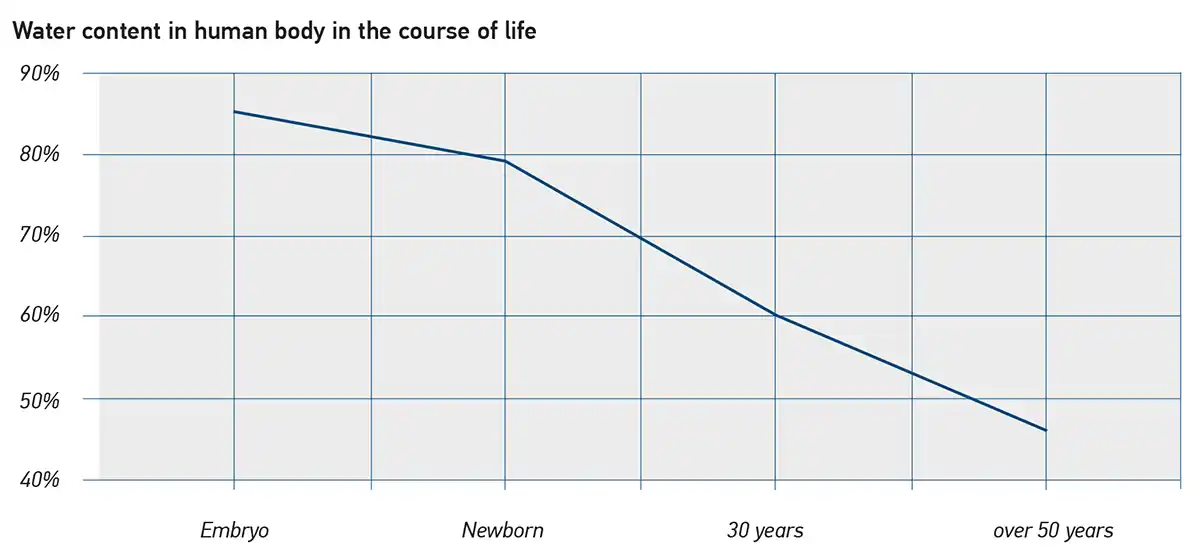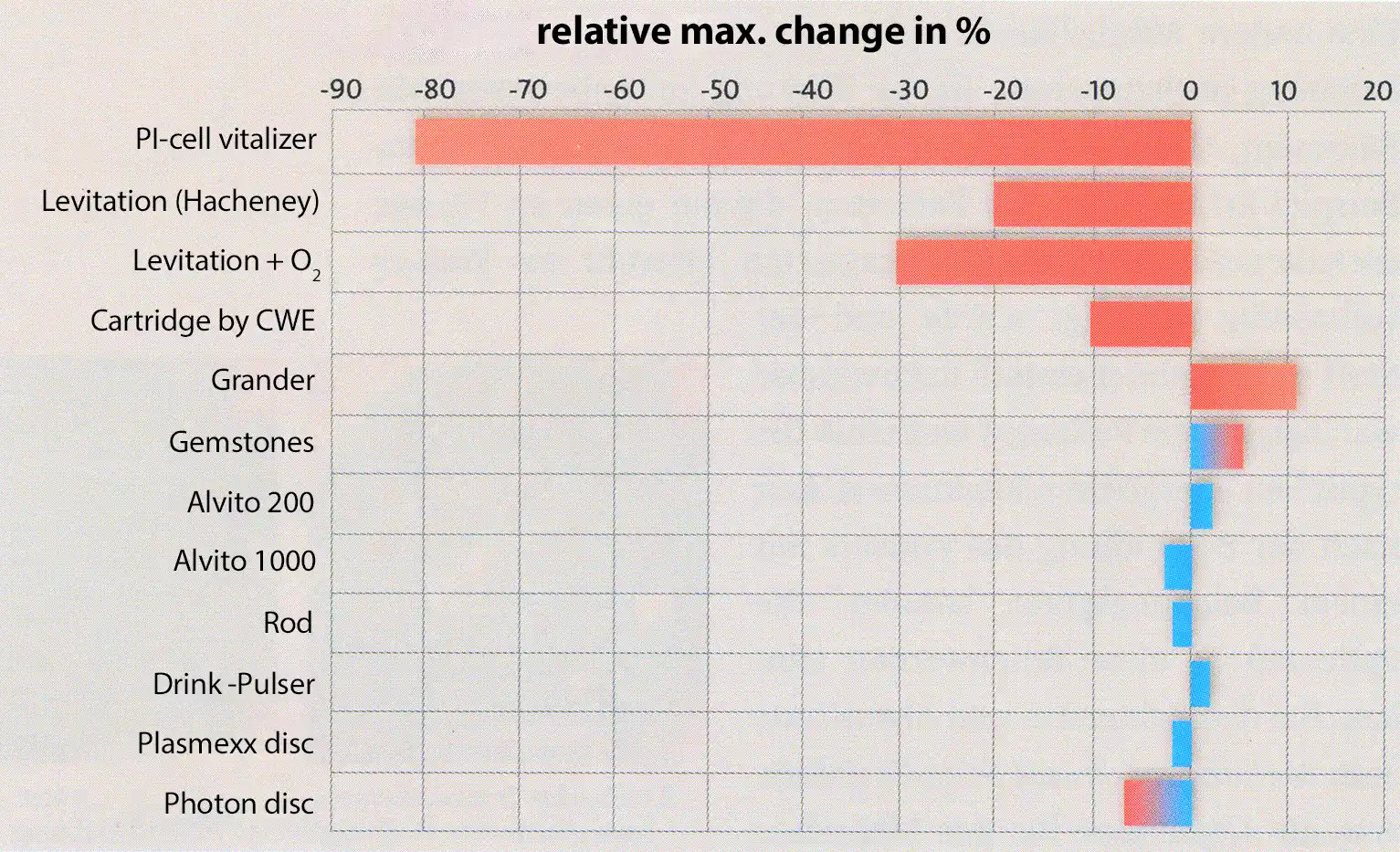The effect of water on human body.
Ageing process
Water content during the course of one’s life
Immediately after the birth the human body consists of 80% water. After a natural death, meaning not caused by an accident or illness, the content of water way under 50%!
During the course of one’s life there is continuous decline of water content in the human body. This loss of water or the accumulation of relative dry matter are the decisive factors of aging. ⅔ of the water content in human body are inside the cell, ⅓ outside.
„Beneficial drinks are liquids with completely different bio-physical properties, as can be seen in naturally pure, energised drinking water, it is a balm for the body”.

The human cell contains diverse organelles containing protein molecules. These organelles and protein molecules are surrounded by a layer of water. The thickness of the water layer is around 20 to 40 water molecules. If the thickness of this water layer reduces, neither the protein molecules nor the organelles are in their usual environment. They are disturbed and dysfunctional.
The metabolic processes of the cells do not function smoothly, the exchange of information between the cells is inhibited. This has especially serious consequences for cell division.
„The cell is immortal. It is the liquid in which the cell swim-sthat is subject to a degenerative processes.“
Dr. Alexis CARREL
Nobel Prize for Medicine
Liquids with optimal bio-physical properties like PI®-Water can be absorbed by the cells very quickly and with very little energy.
Measurement of electroluminescence

Changes of the electroluminescence value (in %) of water probes after revitalization. Red bars show significant change while blue ones are non-significant. Gemstones and the photon disc are slightly significant. The direction of the bars is irrelevant.
(Dr. med. Barbara Hendel, Wasser vom Reinsten, ina publishers, 2002)
The function of water in a human body.
Water regulates the metabolism. Water the nutrients (proteins, carbohydrates, vitamins, mineral nutrients) from the food and transports those through the bloodstream to the billions of bodycells. Here the nutrition’s metabolism, turned into energy guarantees continuous cell proliferation. The many metabolites of the cell e.g. uric acid are dissolved in the water and excreted through the kidneys.
Transport of nutrients to the cell and removal of the metabolites from the organism are the main tasks of water in the body. A water supply, as advised by the World Health Organisation (WHO), is the basis for a healthy metabolism regulation. A sound metabolism is the basis for our health.
Drinking water means be healthy and stay healthy.
Water regulates body’s temperature. Water helps to keep the body’s temperature at aprox. 37 °Celsius. While exercising or high outer temperatures sweat is produced which evaporates on the skin. This has a cooling effect on our body temperature.
Without the water evaporation would the body’s temperature quickly rise over 41 °Celsius, which would implicate a stroke.
The correct fluid intake.
The World Health Organisation (WHO) recommends to keep a lifelong health a to drink at least 30 milliliter purest water per kilogram of bodyweight daily.
Examples:
- 60 kilogramm bodyweight x 0,03 liter = 1,8 a day
- 75 kilogramm bodyweight x 0,03 liter = 2,25 liter a day
- 90 kilogramm bodyweight x 0,03 Liter = 2,7 Liter a day
For every cup of coffe or black tea as well as for ever glass of wine an additional glass of water should be drunk.

